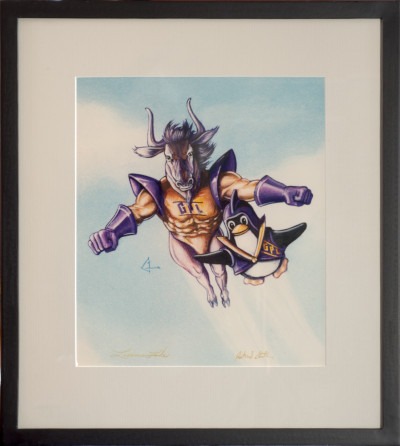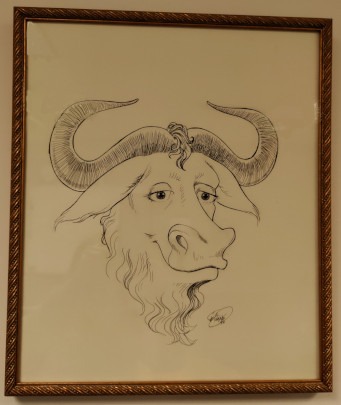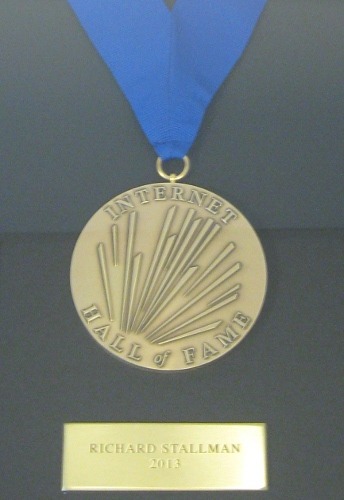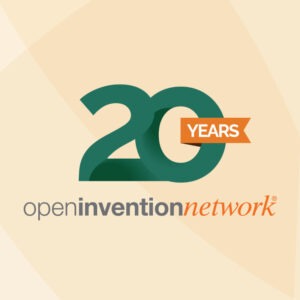The auction was part of the Free Software Foundation’s way of celebrating its 40th Anniversary. Coming up in May will be LibreLocal community meetups around the globe, and later perhaps, another memorabilia auction.

Earlier this month, the Free Software Foundation held an auction of some of the most significant items in FSF history as part of its celebration of its 40th anniversary this year, and the resulting revenue from the auction is significant.
The auction, scheduled as a virtual silent auction from March 17 and running through March 21, concluded in a virtual live auction on March 23.
“For many years these items decorated the walls of our offices and this year is our 40th year of existence,” Zoë Kooyman, executive director at FSF told FOSS Force ahead of the event. “We no longer have an office to give these items a nice space, so what better celebration event than to go through some of our memorabilia. We want the community to have them so that we know that they are taken care of and appreciated.”
Eighteen items of memorabilia were auctioned off on March 23, Kooyman told FOSS Force in an email exchange.
“I’ll tell you the highest winning bid on the GNU Head, which was of course the press highlight — $40,000,” she said. “Apart from the GNU Head, the most contested memorabilia were the Dynamic Duo signed poster print and the Amiga 3000UX.”
The original GNU head drawing was done by Etienne Suvasa, who was also responsible for the cover art on several FSF publicatons, so not only was this item of interest to free software advocates, but also to art collectors worldwide, according to the FSF. The Amiga 3000UX was utilized in the FSF’s old office at the Massachusetts Institute of Technology in GNU’s early days and is capable of running a GNU-like operating system.

Who Participated?
For privacy reasons, the FSF declined to reveal the names of people who purchased items at the auction.
“We can tell you though that the winners are coming from many different countries, among them are Mexico, Poland, France, China, Germany, and the United States,” Kooyman said. “The auction had long-standing free software community members among the winners, which is exactly what we had hoped, and we’re grateful to see the memorabilia in good hands.”
In addition, “we’re also happy to report that the GNU Head and the Internet Hall of Fame medal will stay together. Several of the winners declared that they intend to display the memorabilia exactly as they were displayed at the FSF’s office at Franklin Street.”
The Internet Hall of Fame medal was awarded to FSF founder Richard Stallman. Stallman’s induction has been described as the ultimate recognition of free software’s immense impact on the development and advancement of the internet.
What’s Next?
Kooyman said that there may be another auction in the upcoming future.
“There are more memorabilia and we may consider doing another auction in the future, but for now we are focusing on the next installment of the FSF 40 celebrations, as our LibreLocal community meetup month is coming up soon in May,” she said. “It has become a truly global effort to spread the free software philosophy and we are excited to see many local organizers are organizing community meetups in their areas, with or without our help. The rest of the year is still full of activity.”

As for the May meetups, the FSF is organizing gatherings around free software with in-person community meetings to bring people all over the world together and celebrate 40 years of commitment to software freedom. A guide to organize a meetup is available on the FSF website.
“It can be as simple as announcing that you’ll be at pub X on date Y at time Z and look forward to meeting people there,” according to this web page on the FSF site. “Attendees can swap stories about how they first got involved with free software, what steps of the freedom ladder they are struggling with, or how they tell their friends and family about free software.”
Founded in 1985 in Boston, the FSF’s main focus is to promote users’ right to use, copy, modify, study, and redistribute computer programs. They achieve this by promoting the development and use of “free as in freedom” software, like the GNU operating system and its GNU/Linux variants.






